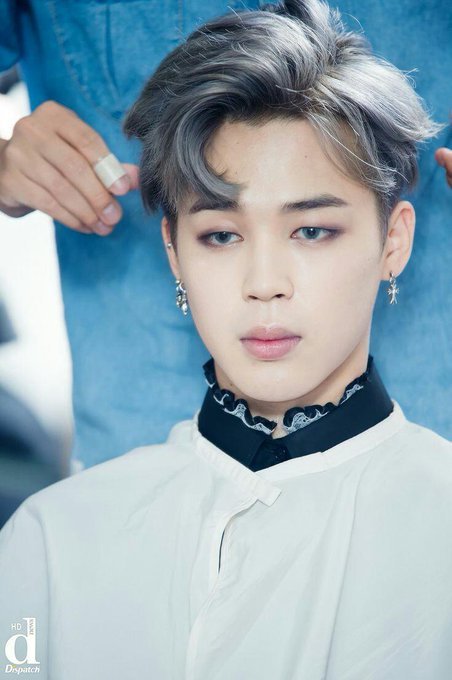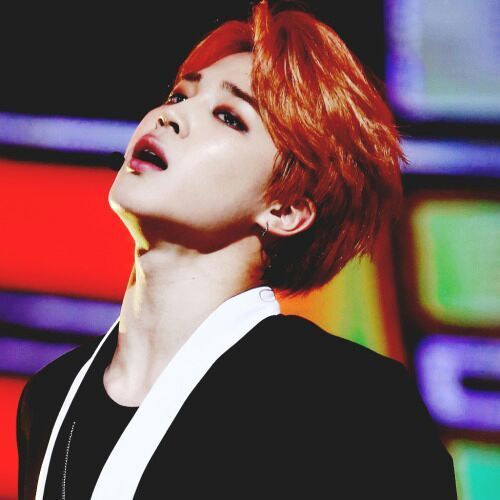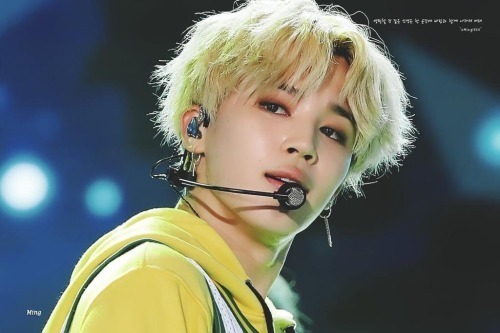Please Be Aware Of This Double Standard.
Please be aware of this double standard.
Freddie Highmore was nominated for a Golden Globe for his portrayal of Shaun Murphy on The Good Doctor.
Now, as an autistic person, I think he’s done a great job of playing a character who is his own individual person. Shaun Murphy has a distinct personality as well as a past, aspirations, motivations, wants, needs and flaws. He doesn’t feel to me like a really bad cookie cutter of “random senseless behavior because hey this character is autistic” that tends to plague actors who play autistic characters. Scenes from Shaun’s POV show what drives his behaviors and tendencies. The “savant” stuff appears to be a really good memory and may also be his visual thinking, which is often portrayed by showing him mentally assembling or disassembling things.
I know the writers and crew are neurotypicals, but it feels like they’re really doing homework instead of showing what they *think* autism is. Freddie said in a Facebook Q & A that autistic consultants are helping with the show, so there is that. (Now let’s get the whole bunch away from Autism Speaks, blaaaah!)
The show’s creators stated that Shaun is supposed to just be Shaun, not a representative of all of autism everywhere. Everybody presents their autism a little bit differently, so of course Shaun may or may not remind you of you or an autistic person you know. I happen to share similar autistic traits to him, such as clasping my hands together (done that all my life!) and the way Shaun moves his body is similar to how I move mine.
But there is a double standard out there that NTAB* people often engage in regarding autistic / disabled people. I’m going to say “autistic” a lot below, but you can imagine “disabled” is there, too. Please take note of what I’m pointing out.
Neurotypicals who pretend to be autistic for movies or your TV screens get rewarded for acting in a way unnatural to them, and their ‘autism’ disappears as soon as the director yells “Cut!”
Actual autistic people who behave their normal way are judged, bullied, called cringey, excluded, are shut away and some of us get abused and murdered by our caregivers.
Nobody yelling “Cut!” is going to make autistic people stop being autistic. We are often forced to act neurotypical via damaging therapies, and those of us trapped in a 24 / 7 acting job never see any reward for it.
We, as autistic people, have to listen to parents saying they wish we were never born or how they wish they could change us to be the person they “wanted” instead of who we are. We have to hear about people longing to cure and prevent us. We have to listen to charities talk about what tragedies we are and how burdensome we are on our families. We deal with being dismissed, spoken over, ignored and silenced.
Somebody can play us on TV and get rewarded and lauded for it, but us being ourselves is something to mock and destroy.
This is the truth any time an able-bodied actor takes on the role of a disabled person. It sends a message that disability is only acceptable if it can go away as soon as a director yells “Cut!”
We live in a society that rewards people who pretend to be autistic for entertainment, but shuns actually autistic people in the real world.
It’s a very dangerous double standard.
Please be aware of it.
-( Anyone can reblog, and I encourage you to reblog so this spreads around. )-
* NTAB = Neuro-Typical, Able-Bodied
More Posts from Luminarybri and Others
I WILL BE CENSORED AFTER DEC 14TH

Good, I’ve got your attention. I’ve heard about this net neutrality bullshit returning. I fought it when it started popping up a few years ago, and I’m going to fight it again. Guys, it’s BACK AGAIN and even worse theres a big chance it will END UP PASSING!
https://www.battleforthenet.com/#bftn-action-form
This could literally mean a shit ton of you wont be able to see me anymore if your provider decides that they want to regulate/censor, sayyy overly sexual content. You’ll also have to pay extra money to even use Tumblr!
https://www.battleforthenet.com/#bftn-action-form

Please guys, we defeated this shit once, we can do it again. They’re trying to do it now while people are distracted by the holidays and fucking Justice League. As of today, it seems as though there have only been 266,810 calls made to Congress. This is NOT good enough!! MILLIONS of people use the net, and if each one of them took 60 seconds to call and protect it, holy balls do you KNOW how much of a difference that would make??? But noooo, you’re busy streaming an ecchi anime that wont be available to you soon!!!!!

Heres a direct link to make a difference (theres also links to other sites of the same nature on here), and yes, YOU can make a fucking difference because this is YOUR internet at stake here. If you’re not going to make the call, share this and maybe SOMEONE fucking will!! This is important as shit and we cant afford to lose. Dec 14th is the deadline.
https://www.battleforthenet.com/#bftn-action-form



Cosplayer: @protege_47
Character: Shikamaru Nara
Series: Naruto Shippuden
Photographer: @thatodphotography
infinity war but it’s just Steve and Bucky performing the boys are back from the high school musical soundtrack for 2 hours





Caleb for House of Solo Magazine. (:
“you’re the only person who made me feel like I wasn’t hard to love”
- but if your love was a lie, then what does that make me

To shut up the haters :)
Jimins eyeshadow game tho. 💅















Please Watch “Orange”

Ok everyone. I’m sure some of you have probably heard of this anime, and those people who have heard of it have probably strayed away from it for the same reasons I did.
I am a huge fan of romance anime. I’m basically addicted to anything involving love, but I was weary of this show, called “Orange,” because (1) you learn from within the first few minutes of the first episode that the love interest is going to die, (2) it looks really cliché, (3) it is not very popular, and (4) it looks sad.
I was wrong. So very wrong.
(1) Yes, the anime has its bleak, raw moments, but those moments were the ones that I never had anticipated that I would appreciate the most. Something that definitely became an admirable point of the anime was its very real, non-sugar-coated portrayal of depression, mental illness, suicide, and grief. This series does what most shojou romance series shy away from and actually shows the audience what depression is like through Kakeru, the fated-to-die protagonist, and the seriousness of suicide.
As someone who has personally battled with clinical depression for years and has been to therapy and counselling, this anime hit home for me. The faking smiles, pretending everything is okay, the self-loathing, thinking you are at fault, thinking you are a burden to others, denying yourself happiness, not allowing yourself forgiveness, and the thoughts of death; they are all things that I could relate to. They even included how you can still experience moments of true happiness even if you are depressed, but how it never really goes away. Sure, this anime might not be as light-hearted as others, but it’s the heart-rending instances in this show that give it so much impact and substance.
(2) This anime does have some clichés (i.e. cultural festival, giving chocolates on Valentines Day, new kid at school sits next to the main character), but the plot completely colors these events in ways that make them so much more meaningful and different than you have ever seen them. One of my main concerns going into this show was that I would be bored, but I ended up watching it all in one sitting simply because of how much I needed to know what would happen. Additionally, the secondary characters are wonderfully fleshed out and are actually important to the plot, instead of feeling like accessories.
(3) I know this anime was based off of a manga (which I had once picked up on a whim, but put down once I saw how sad it was probably going to be), but I have never heard people talk about it, like ever. Even when the show came out (which it did recently), there was no buzz about it. Although the lack of chatter surrounding Orange only made me more pessimistic regarding the quality of the show, if there is anything I have learned from watching hundreds of anime, it is that sometimes good shows can fly beneath the radar. I am glad I decided to pick it up after it’s completion and give it a chance, because I just found a series that has easily earned a spot on my top 10 list.
(4) Is this anime sad? Yes. Is it too sad to watch? No. The biggest obstacle that stood in my way for this show was the fact that it pretty much promised from the get-go to be sad. “But love is supposed to be happy and have a happy ending,” you might say, “so how can that be possible when one of the protagonists is destined to commit suicide.” I don’t want to spoil it, so all I can tell you is that I was very pleased with the conclusion and it ends much differently than you are lead to believe it will. Trust me guys. My heart is made of glass. I would not recommend this show to anyone if I didn’t think the denouement was really good.
So, in conclusion, set aside a few hours one day and let this series show you its magic!



this has the same energy of when shikamaru pretended to be asleep under kabuto’s jutsu

a sunshine 🌻
-
 dinersaturn liked this · 1 year ago
dinersaturn liked this · 1 year ago -
 hamm-cheese liked this · 2 years ago
hamm-cheese liked this · 2 years ago -
 just-a-throw-away liked this · 2 years ago
just-a-throw-away liked this · 2 years ago -
 jamie-hoot333769-blog liked this · 3 years ago
jamie-hoot333769-blog liked this · 3 years ago -
 rainfrombluesky liked this · 3 years ago
rainfrombluesky liked this · 3 years ago -
 flyingbooks42 liked this · 3 years ago
flyingbooks42 liked this · 3 years ago -
 the-grays-of-ink liked this · 3 years ago
the-grays-of-ink liked this · 3 years ago -
 galactic-spec-of-dust reblogged this · 3 years ago
galactic-spec-of-dust reblogged this · 3 years ago -
 narcmasc liked this · 4 years ago
narcmasc liked this · 4 years ago -
 alexthefandom liked this · 4 years ago
alexthefandom liked this · 4 years ago -
 autistic-bibliophile reblogged this · 4 years ago
autistic-bibliophile reblogged this · 4 years ago -
 17patixyzz17 liked this · 4 years ago
17patixyzz17 liked this · 4 years ago -
 small-croissant liked this · 4 years ago
small-croissant liked this · 4 years ago -
 veever23 liked this · 4 years ago
veever23 liked this · 4 years ago -
 prince-of-dumbassery liked this · 4 years ago
prince-of-dumbassery liked this · 4 years ago -
 holyfunnyhistoryherring liked this · 4 years ago
holyfunnyhistoryherring liked this · 4 years ago -
 nami56745 reblogged this · 4 years ago
nami56745 reblogged this · 4 years ago